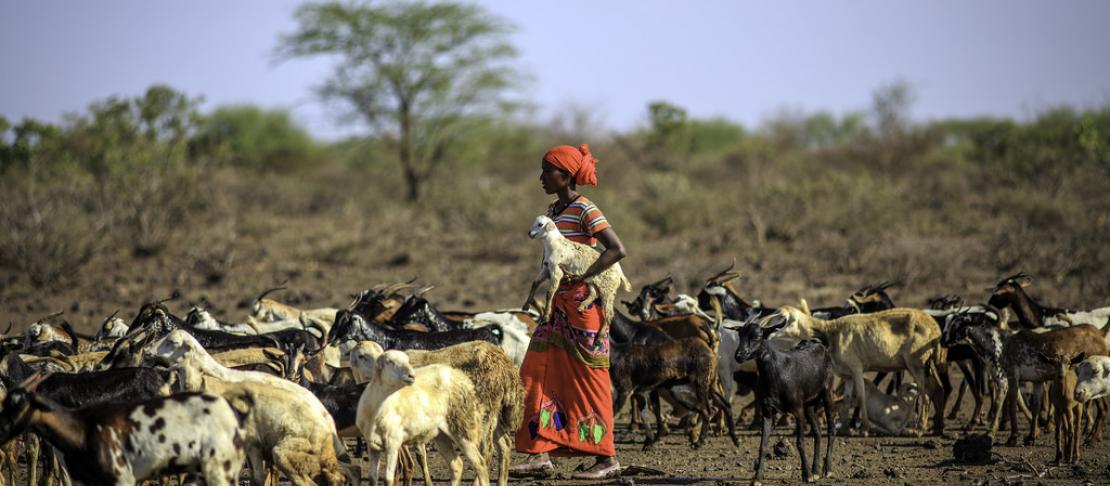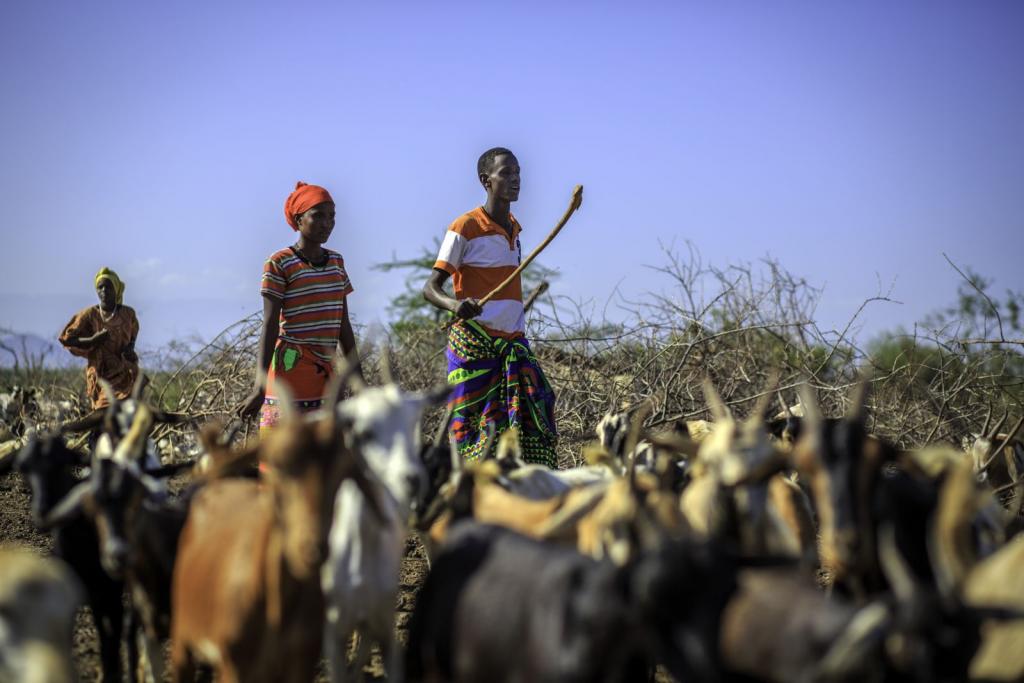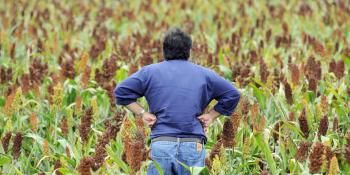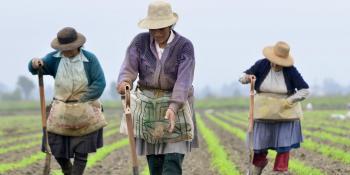Project's quest to understand how climate science, policy and practice interact

Policy-formulation and implementation is far from a logical step-by-step process. Influenced by many and impacted by numerous factors, a new project seeks to better understand the dynamics behind climate policy-processes.
What type of climate science do policy-makers need to build resilient food-system policies? And to what degree are agricultural scientists incorporating policy-makers’ needs into their research? Currently, little analysis on the powerful dynamics between science and policy creation has been undertaken, which limits our understanding of what role science plays in policy-formulation and vice versa.
To bridge this knowledge gap, a new research project has ventured into this new realm of investigation, looking at the inter-linkages of climate science, policy and practice.
Led by the International Livestock Research Institute (ILRI), the three-year project, "Analyzing the science-policy-practice interface in climate change adaptation in East and West Africa" (PDF), seeks to analyse and better understand what influences policy formation and implementation, and what role science, and even scientists themselves, play in national-level policy-making processes.
The project, part of the CGIAR Research Program on Climate Change, Agriculture and Food Security (CCAFS) flagship on ‘Policies and Institutions for Climate-Resilient Food Systems’, will use case studies from actual policy-making processes on pastoral and agropastoral systems in Senegal and Ethiopia.

Photo: New research project will analyse policy-making processes in Ethiopia and Senegal related to pastoralist and agropastoralist systems. Photo: UNICEF
Analysing policy and governance processes
The project approaches science-policy interactions as a two-way exchange. On one hand, the project examines the extent to which scientists, who have embedded themselves into the policy processes, are listening, understanding, and receiving feedback from policy-makers and incorporating their needs in the ongoing process.
On the other hand, the project will examine how science is used and incorporated into national-level policy-making and formulation, as well as how information on the impacts of policies on livelihoods feed back into further policy-advancement. The approach is designed across political levels, from rural agropastoralist communities to national policy makers and researchers to international climate negotiations.
To better grasp the science-policy nexus, the project will analyse real-time science-policy engagement activities and projects.
“Through using actual national-level meeting platforms, we will be able to study the true dynamics of scientists, policy-makers and other stakeholders as they come together and mutually influence and guide policy-development and implementation,” says Todd Crane, researcher and project co-leader from ILRI.
One study area will be the national-level scientist-policy platform on climate change, agriculture and food security in Senegal, created by the CCAFS West Africa team back in 2012. The platform includes regular meetings with a dozen of stakeholders from Ministries of Fisheries, Agriculture, research institutions, farmers' organizations and civil society organisations.
In Ethiopia, studies will be conducted on emergent interactions between science and policy-makers where they are working together in interesting ways such as on the development of the Livestock Master Plan.
Watch video-interview with Project Managers Todd Crane and Lance Robinson:
Why is this important?
“We, the science community, are often not doing the best that we can in terms of bringing science to policy-makers to ensure policies around climate change are informed by the best, and most relevant science,” says project co-leader Lance Robinson.
“Another issue is that policies are created in isolation from each other, while being based on different sources of knowledge and science realms. In addition, they are typically crafted away from the people they affect, for example farmers and pastoralists, whom could actually help inform and improve the policy process,” Lance continues.
Therefore the project aims to produce insights into the complex realities that the science, policy, practice interface creates. A better understanding of how policy is formulated, and what role climate science plays, will help donor agencies, international and national non-governmental organisations and the science community engaging will policy-makers to better understand how these policy-development processes around climate change work.
Ultimately, this will support better and more strategic engagement with policy-maker and strengthen the climate policy-creation hopefully making policies more relevant, equitable and sustainable.
Want to learn more, or get involved, contact Project Leaders: Lance Robinson (l.robinson[at]cgiar.org) and Todd Crane (t.crane[at]cgiar.org).
Related Reading:
- Project Blog on ILRI: New project assesses links between livestock research, policy and climate change adaptation
Written by Cecilia Schubert, Communication Officer CCAFS Flagship 4 on "Policies and Institutions for Climate-Resilient Food Systems", with contributions from Dorine Odongo, Communication Officer at the International Livestock Research Institute (ILRI) and Project Managers Todd Crane and Lance Robinson (ILRI). Video prepared in collaboration with the whole team.



